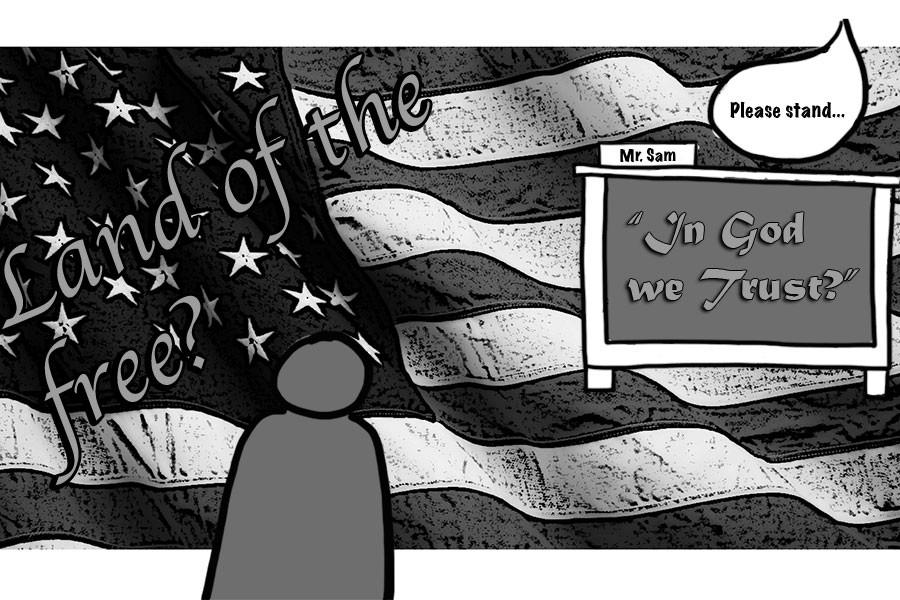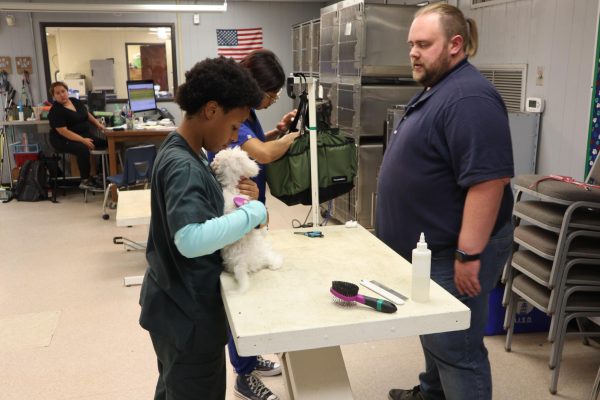The Pledge of Allegiance a weak representation of the United States
November 18, 2015
Imagine this: A normal school morning, students coming into class, the intercom comes on and the pledge begins. A student chooses not to stand up because they want to exercise their freedom of speech, or their religion requires them not to.
The teacher follows this act with aggression in either publicly criticizing the student or sending them out of the room, which is unfair to the student for simply practicing their rights. The student is accused of challenging the patriotism of the constitutional rights, when in reality exercising the First Amendment right, which is definitely patriotic.
In 1943, the U.S. Supreme Court ruled in West Virginia Board of Education v. Barnette, that students could not be compelled to say the pledge. Despite this ruling, students have still been punished for refusing to stand and say the pledge.
The phrase “Under God” was not in the original pledge. The pledge currently violates the Con- situation by invoking religion into government funded public schools. It’s obviously Christian, nothing else.
The phrase “liberty and justice for all” is hypocritical when people are being treated unfairly for their race and/or sexuality, or when they’re blamed for crimes they didn’t commit at all. The pledge is a lie that we shouldn’t be required to spread.
Most schools in the United States pledge, but a few do not: Hawaii, Iowa, Vermont and Wyoming. Although students aren’t required by law to stand for the pledge, some teachers are aggressive to students that do not.
I don’t believe the pledge is worth standing for. But, if a teacher forces you to stand up and stop talking, humor the ignorant.









